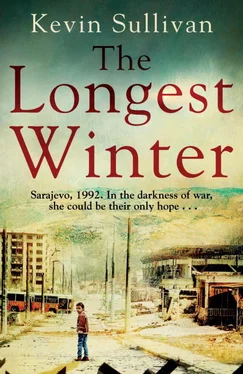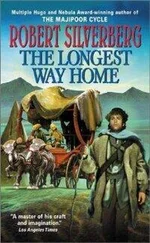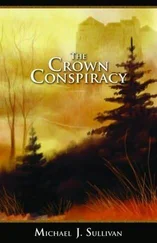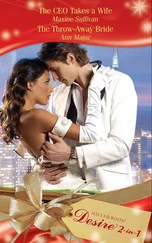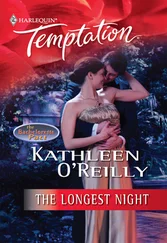He had placed two pieces of wood in a small stove and lit a fire with shards of cardboard. When the water on top of the stove began to boil he sprinkled it with ground coffee and stirred it gently. Then he took the coffee into the room and placed one cup on top of the piano in front of Milena. She gave a little nod of thanks and he reciprocated. He liked waiting on her.
He took his own cup to the low table by the sofa and sat down.
She watched, wondering if he wanted her to continue. But who wouldn’t want to hear this piano played?
Usually she liked Jusuf’s reticence. At the bar, words were even more pervasive than alcohol, a babble lurching between aggression and maudlin good humour.
She wouldn’t have chosen to work in a place like that. It was dirty and dishonest and there were killers among the men who came to drink there. Not soldiers doing their duty, but men who liked killing.
She made herself play more slowly, more gently. She listened to the clusters of chords, and then started a different melody, one that reminded her of summer days.
Milena had found a job in a bar because she knew that kind of work. She could maintain a conversation at any level, and she could juggle marks and dollars and dinars, calculating bills for half a dozen tables.
Jusuf wished she would play a particular song, but he couldn’t remember the name. She had played it before. It might have been from Eurovision. He could remember the tune, but not the name.
The melody she played now was wistful. Jusuf began to follow the long, lyrical phrases. He knew that in Milena’s hands this music would move at its own pace, at the right pace. It would set itself down in the candlelight as though it were the sound created at the very beginning of time to accompany their thoughts and feelings in this particular moment. And because she played this assured and beautiful music his thoughts began to rearrange themselves and he considered people and places and faces that had until then been kept from the forefront of his consciousness.
As he listened to Milena play, Jusuf thought about Bakir Mehmedbasić. In peacetime Mehmedbasić would have spent his army days in detention: he was not bright but he was very aggressive – a common combination. At the beginning of the war, he had enlisted with a government militia group put together by a gangster. It was ill-equipped and ill-disciplined, but the boys in Mehmedbasić’s outfit were keen to fight. Jusuf had been a major in the pre-war army. Within weeks of the start of the conflict he was promoted to colonel. The designation didn’t mean much. There were colonels with next to no experience whose claim to rank was based entirely on having friends in the right political circles. Jusuf’s authority stemmed from competence and a natural ability to command – but even he was confounded by the ramshackle chaos of units like the one that had signed up Mehmedbasić. There was no shortage of aggression, no shortage of courage, but a dearth of judgment and an absolute absence of training.
Mehmedbasić was just twenty years old and he already had a criminal record when the war began. In the beginning, he wasn’t allowed a gun, since he couldn’t be trusted to fire it in the right direction. In wartime, some men discover they are cowards; others discover they are not. Mehmedbasić discovered that he was ethical . The idea of what they were fighting for crystallised in his head and for the first time in his life he gave credence to the notion of right and wrong. He wanted to fight because he believed the cause was just .
He was given a job running messages between the lines. The lines stretched through apartment blocks and moved nightly. The fighting was bitter and bloody, street by familiar street.
The day Bakir Mehmedbasić was allowed to join the ranks as a fully-fledged, gun-toting militiaman he was shot dead. He went down to Vrbanja Bridge and stood with his rifle over his shoulder, arms spread wide, and shouted at someone he knew on the Rebel line across the river. Perhaps he was drunk.
‘Come and join us over here!’
This wasn’t a competition among fans at a football match. It wasn’t a day out where you recognised an acquaintance from school and started to trade jokes and insults. Perhaps Mehmedbasić had been seized by the absurdity of their predicament – because they did know people on the other side, and they had been friends, and they spoke the same language and knew the same streets and bars and rock groups and football teams. It was a family sort of war. There had been a time when being from a different community didn’t mean much, when friends were friends regardless. Mehmedbasić grasped that this had changed. Perhaps he simply couldn’t accept it.
So he stepped out into the open and like a madman he yelled.
And then he was shot.
Jusuf didn’t know why he thought about that boy now.
Yet it was a brave thing Bakir Mehmedbasić did that day. He shouted with indignation, with righteousness .
Jusuf looked ahead through the spiralling cigarette smoke and listened to Milena play. He watched her expression, as if she were giving a public recital. He loved the way she pursed her lips in concentration. He wished he could remember the name of the song he wanted her to play.
The coffee had a bitter taste. He stood up, still thinking of Bakir Mehmedbasić’s odd and pointless gesture.
When Jusuf had first met Milena in the bar she wore a dark woollen dress with buttons all the way up the front. She was prim and attractive at the same time. That’s how he thought of it then. She behaved as if they were being introduced at the house of a mutual friend, and not in a black-market bar. She seemed somehow separate from her surroundings.
Outside now, it was unusually silent, not even the sound of tracer fire.
In the bedroom they undressed. Milena could see his breath in the freezing air. Little tails of cloud in the moonlight. The bed was icy.
Every kiss carried her another microscopic measurement of space from Foča, her town in the east, from the face there that she had loved, from the life there that she had abandoned.
Jusuf’s honourable face, hands and body displaced that body, that voice, that look, that touch.
In the light of the guttering oil lamp, she stroked Jusuf’s face, running her index finger over the contour of his lips.
Outside there was a detonation, near Gavrilo Princip Bridge.
They lay still. In the morning everything – the bed clothes, the curtains, the furniture, the ancient carpet – would be coated in a layer of grime from the oil lamp. Milena could already feel the residue of oil in her hair.
The banging at the door was more startling than the sound of the explosion. It was sharp and insistent.
Jusuf leapt from beneath the blankets, pulled on his trousers, slipped into his boots and donned his overcoat without shirt or jacket. He extracted his pistol from its holster, eased the safety catch back and walked out of the bedroom.
Milena got up, threw on clothes and followed him into the hall.
He stood away from the door, the pistol pointing to the floor, and signalled her to go back into the bedroom. But instead she stepped forward and stood beside him. He eased her gently against the wall, placing himself between her and the door.
‘Who’s there?’
‘Alija.’
Jusuf relaxed and opened the door.
A dapper-looking man with a bearded, bespectacled face came into the lobby, bringing a blast of cold air with him. Perhaps Milena registered the change in temperature more acutely because Alija’s arrival shattered the intimacy between her and Jusuf. When Alija looked at her he did nothing, she thought, to mask his suspicion. In the new scheme of things, her name counted against her. In Alija’s eyes it was a Rebel name. And this woman with a Rebel name was the lover of a key government commander.
Читать дальше
